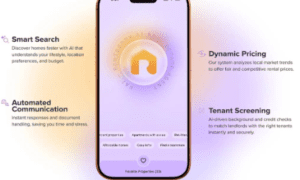Small company or large organisation, service sector or retail industry – regardless of the type, every business needs a phone system to handle day-to-day communication, both internally and externally. Many companies are still using traditional phone systems, which typically utilise a physical device and analogue signal to make and receive calls. However, the world is fast changing and there are now many more modern solutions out there, one of which is a hosted VoIP. Here’s everything you need to know.
How is hosted VoIP different from traditional phone lines?
At its core, hosted VoIP, or Voice over Internet Protocol, involves sending voice signals using an internet connection, as opposed to hardware and copper phone lines. It is a cloud-based phone system that does not require an on-site PBX (Private Branch Exchange) hardware. Instead, third-party vendors manage these calls entirely off-site. Therefore, “hosted”, is really the key word in this.
The process behind hosted VoIP calls is technologically advanced yet relatively simple to understand from a user standpoint. When you speak into a compatible device, like an IP desk phone, a computer softphone, or simply a mobile app like WhatsApp, your voice is instantly converted into these digital data packets. The packets travel securely over your broadband connection to reach the recipient, who could also be using a VoIP or simply a traditional phone network.
The whole process happens instantaneously, while the third-party provider utilises secure data centres to facilitate it. Think of it like using cloud-based email services instead of running your own physical email server in the office. The major different between hosted VoIP and traditional phone lines is not how it works, though. There are numerous advantages involved in using this modern solution.
Benefits of hosted VoIP phone systems
One of the main reasons businesses opt for hosted VoIP systems is their cost-effectiveness. Unlike traditional phone lines, which charge for long-distance calling, typically by the minute, hosted phone systems usually offer unlimited free calling to a large number of destinations. That is because they use a monthly subscription model, with the pricing based on the number of users. Not just that, since there is no hardware or maintenance needed on a cloud-based solution, this also results in significant cost-savings long term.
Additionally, the flexibility of VoIP systems is a huge benefit for businesses. Since you do not have to rely on a physical, on-site hardware, calls can be done from anywhere and any device, as long as there’s a good internet connection. In the times when hybrid working is more popular than ever, the portability and flexibility of your business phone system is key. Setting it up is also simple – all you need to do is install the software onto your device and log into your account. This is something that employees can set up themselves in the matter of minutes.
What’s more, VoIP systems are highly scalable thanks to their subscription-based pricing model. This essentially means that the system can be easily upsized or downsized depending on your needs. Say a business hires a new employee, they can simply add a new user to their plan. Or, similarly, if your organisation tends to have seasonal peaks in demand, you can upgrade your features for those months only.
Essential hosted VoIP features for businesses
Beyond facilitating the usual voice calls, hosted VoIP systems come packed with a range of features designed to boost business efficiency. For instance, tools like call campaigns, agent assignments, predictive dialler, auto dialler, instant messaging, video conferencing, and smart routing are all there to make call management much more convenient. They don’t just increase the productivity of your agents, but also help improve the overall experience for the customers.
Not just that, hosted VoIPs offer full integrations with your existing software, like CRM platforms or ERP systems. This fully centralises all of your data in one place, allowing it to flow seamlessly between the different tools. For example, the agent is able to make notes and schedule future actions on the CRM system in real-time, while talking to the customer. As a result, data does not get lost and all agents are always on the same page.
Speaking of data, hosted phone systems also provide advanced analytics capabilities. Using historical and real-time data, these platforms pull a variety of metrics to create valuable reports for the agents, whether it’s key performance indicators or general customer insights. This data is of paramount important for businesses that want to keep optimising their operations and strategies.
Is hosted VoIP right for your business?
If your business relies on regular calls for its operations, whether it’s talking to partners and suppliers or providing customer support, a hosted VoIP is a comprehensive solution. Packed full of advanced features and capabilities, these cloud-based phone systems are not just more effective, but also solve a lot of challenges associated with traditional phone lines, like scalability, flexibility, ease-of-use, and high costs.































